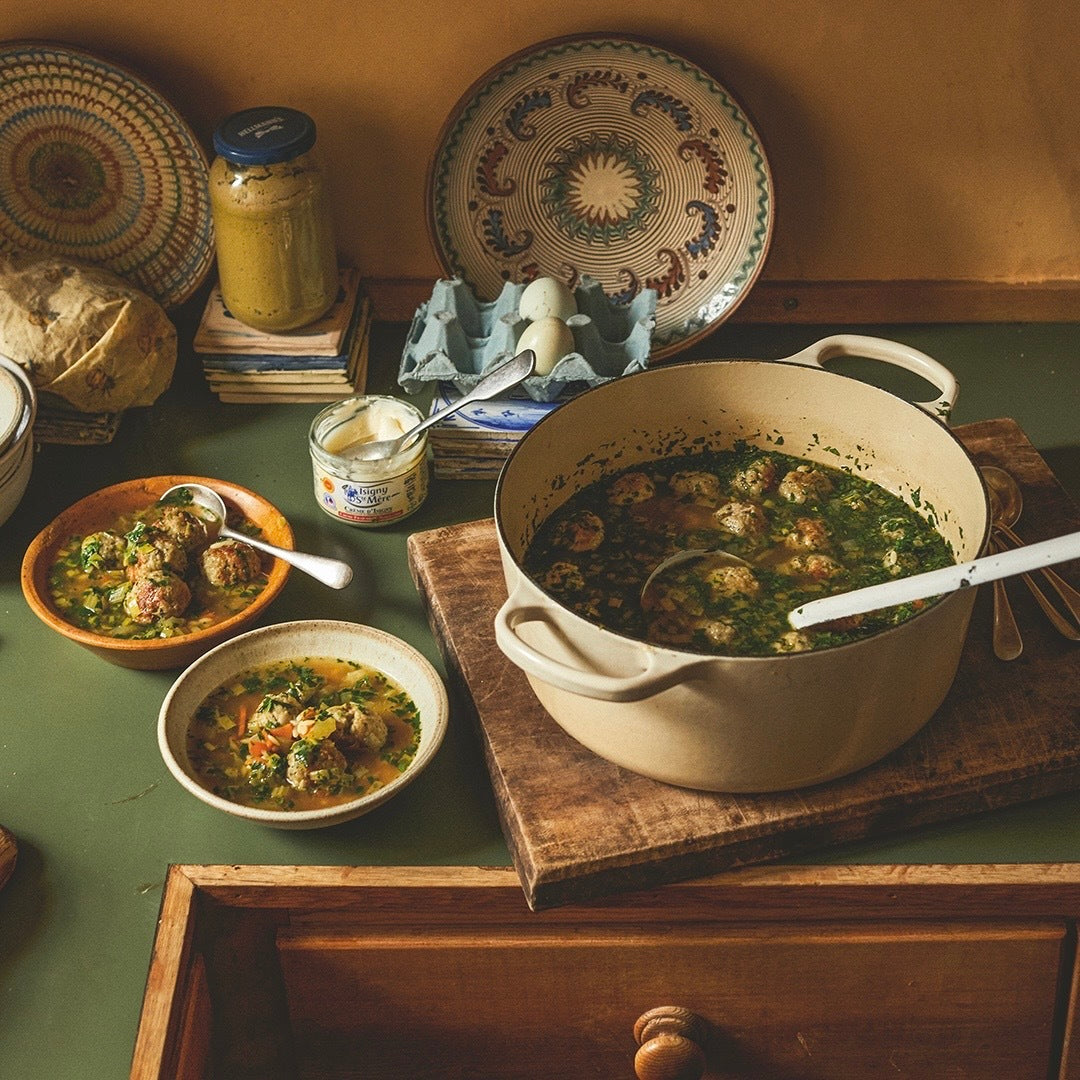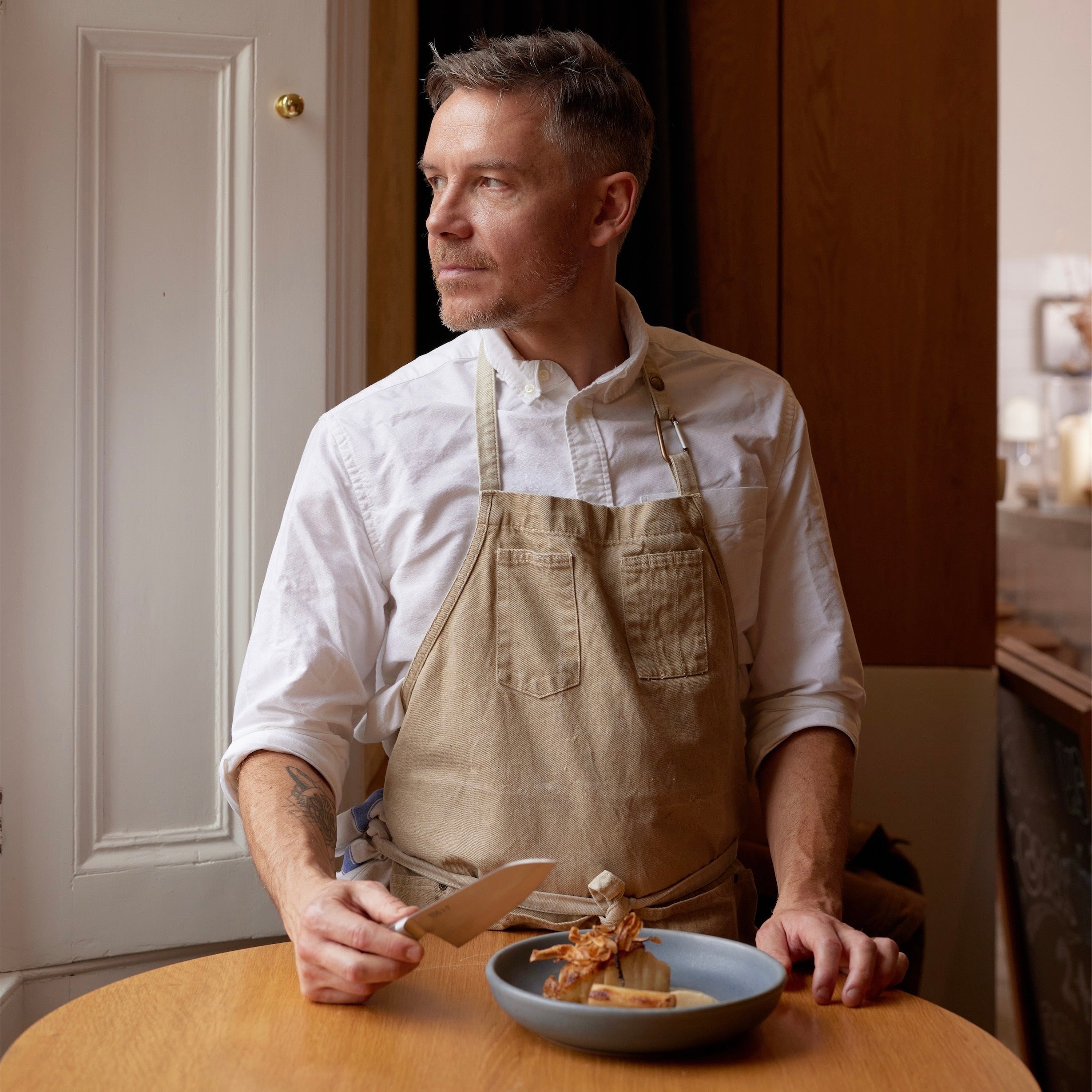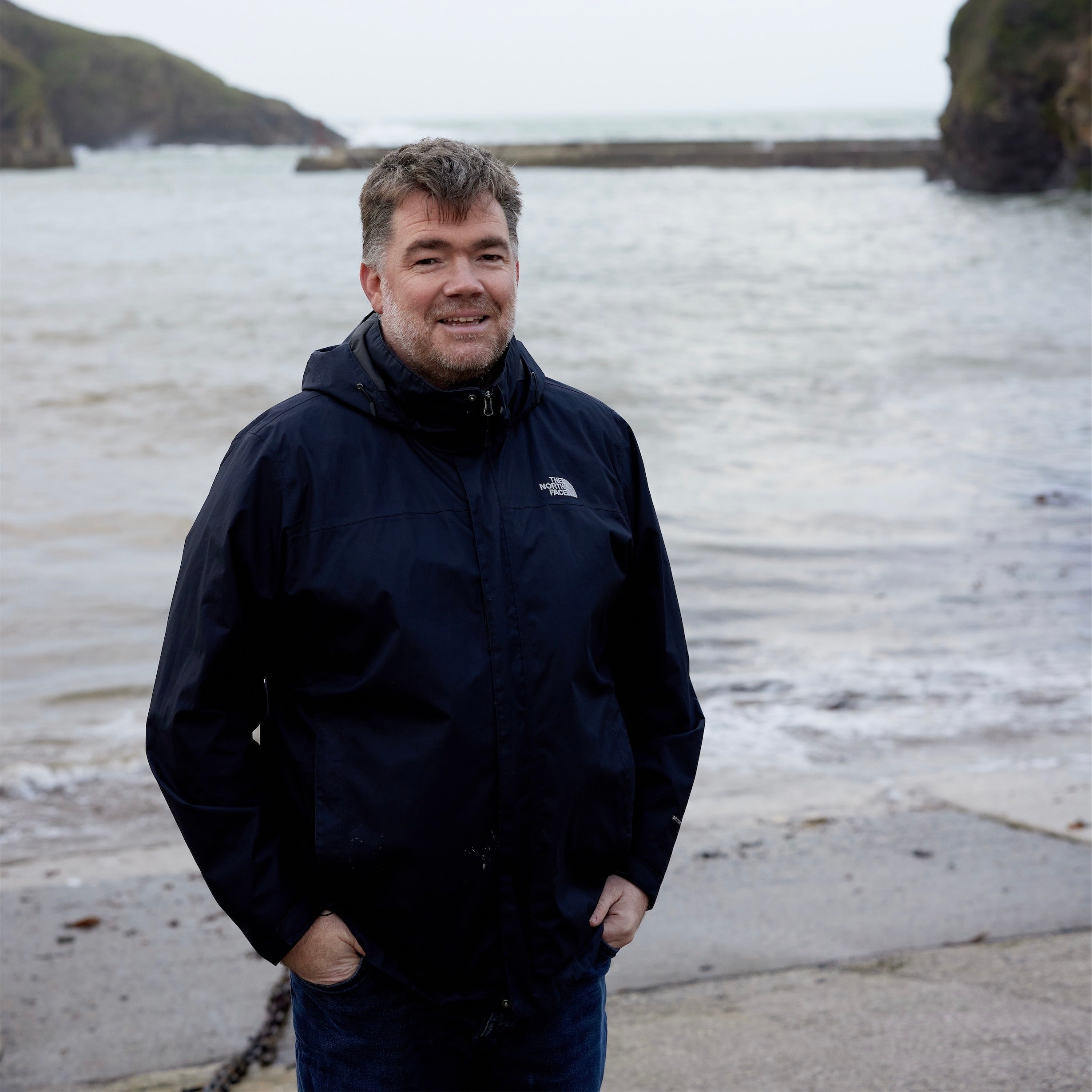
Josh Eggleton (M.B.E)’s journey in food has been anything but linear.
A chef committed to forging his own path since 17, by 22 he’d set up gastropub The Pony and Trap (just 10 mins down the road from TOG HQ) - gleaning its first Michelin star when he was still just 27.
Josh and team are now running six successful restaurants in the Bristol area as well as events, festivals and charitable ventures. Josh is ready to impart the wisdom he’s learnt along the way - in the form of a cookery school at the all-new The Pony Chew Valley in North Somerset.
At TOG, we’re delighted to be supplying knives and chopping boards for the new cookery school and to be working with Josh, who we feel shares our values around food, innovation and sustainability. We took the opportunity to sit down with Josh to talk about the past, present and future - and his bigger ambitions in food education.
Plus, he shares his tips for the perfect boiled egg.

Hi Josh. Thanks for taking the time to sit down with us. So, we’re going to kick things off with a big one. When did you first fall in love with food and know you wanted to become a chef?
Before I decided I wanted to become a chef, I always knew one thing for sure: that I wanted to work for myself - and whatever I did, I wanted to try and create it for myself, too.
That started in the guise of working at a fish and chip shop. It wasn’t long before I wanted to open my own. Which we did, actually. From there it became, ‘well, I’d like to open a restaurant’, and then, ‘I should probably become a chef. I quite enjoy cooking.’
That was kind of obvious. Growing up, my parents always cooked fresh food - nothing fancy, but no junk, no ready meals. Fresh food on the table everyday. And then, from 11 years old, I started cooking food for myself. I taught myself to cook. I would make cakes and flog them to my neighbours so I could buy fags. And when I didn’t have the grades to go to university, I got a job in a kitchen.
For those who may not be in the know - can you tell us a bit about your journey in food? Are there any highlights, moments or people that have had the biggest impact on you?
I took a different course, really. Like I said - I always wanted to do it for myself.
When I was 18 years old, I won a scholarship with Gordon Ramsay, the Gordon Ramsay College Scholarship. I got work experience on a 2-star restaurant in Sicily and then offered to work in London after that at a Gordon site, but I turned it down. I was committed to working for myself. I was absolutely adamant about that. So that’s what I did. For a long time afterwards, I thought that maybe I’d made a mistake. But now I realise I was happy in that place, filled with tenacity and determination to figure things out myself. I made a lot of mistakes, but you learn quickly.
I did some other bits too, of course. I worked with a French chef in the early days for a couple of years, who taught me the basics and helped me to understand what it is to be in the kitchen. I worked some commercial catering jobs too, did a lot of work experience, and worked in a fish and vegetarian restaurant in Bristol. I also read an awful lot of cookery books to try and teach myself.
And then, with only about five years’ experience of working in professional kitchens, I opened up The Pony and Trap in 2006, at 22 years old. Five years later - in 2011 - we were awarded our first Michelin star and maintained that until we closed during the pandemic. And now we’re reinventing ourselves.
Of course, in that time, we opened another six restaurants and created several food festivals too…
What I've learnt along the way is, all we (I) do, all day long is teach people - our staff. We teach them how to cook, where the food comes from, how to operate within a business and how to provide a good service. All of our restaurants are classrooms. You’re nothing without your staff, and it’s my responsibility to teach them. I’ve had lots of members of staff who have worked for me for a very long time, so I just wanted to extend the bookends of what we were doing at The Pony to the general public - and that’s where the idea for The Pony Cookery School came from.
Of course. So you’ve just relaunched your Michelin-star pub in Somerset, The Pony, as a cookery school - what do you hope participants will gain from attending it? What are your ambitions for the school?
Well… we’re currently looking into landscaping our garden to take about one acre's worth of vegetable beds and two polytunnels. We're going to be teaching people where their food comes from, how to eat well and, finally, how to cook. I want to take what we teach all of our staff in our kitchens and offer it to everybody in the community and the public. That's what the cookery school is. And then, as we continue to grow, we're going to do more.
We’ve just opened a second Root restaurant in Wells and have plans to expand to Exeter, Oxford and Bath too. That’s going to grow as a business - but the cookery school and the farm we’re building at the back will form the nucleus of that. For any training in any of the new restaurants that needs to take place, the staff will have to come and work here - on the land. Learn where the vegetables come from and how to make all the food that we serve at Root. So the cookery school is going to feed our expansion.
20% of our space, in the next few years, will also be given over to the community. So we’ll be hosting charity events, volunteer groups in the garden, running kids’ classes and having schools come to see us - to educate as many people as possible about food and where it comes from. Because food is life and we have got some real, large fundamental things we are facing in the next 20-30 years that are going to require us to change our food systems in this country and the world, to create a better future for ourselves - and it’s all down to education.
I want to be able to give myself the ability to educate people, and anyone around me who’s willing to listen as much as possible.


On the subject of imparting your knowledge - how would you best describe your approach to food?
Our approach to food is ever-changing. Inquisitive. Wanting to learn as much as possible. Never being satisfied. That would be my advice to any aspiring chef or restaurant owner.
Food evolves, produce gets better, there’s a changing environment and we always want to improve. But, essentially, we always start with a great product. If you don’t start with a good product, you’re f**ked.
You know, one of my big tasks now is… how do we get healthy, delicious and affordable produce to the masses? That’s another thing we have to try and achieve. But don’t get me started on that.
That’s certainly a conversation we’d like to have. We were obviously very pleased to furnish the cookery school with TOG knives and chopping boards. If you don’t mind us asking, do you have a go-to TOG knife?
I have two.
Correct answer!
The Sujihiki is one we tend to use more in the restaurant kitchen. Really good for slicing. Really good for finishing. Whether that’s a perfectly cooked piece of lamb, fish or lobster tail. It’s just the knife for that.
And then for me, my everyday knife is the Gyuto. Slightly larger than your average chef’s knife - but ideal for everyday use.


Sharp knives aside, what is one thing you can’t live without in the kitchen?
Chopping board. Simple as that. You can’t do anything (in a kitchen) without a good knife and chopping board.
A great answer. As someone who has built a few of their own, in your mind, what makes for a successful independent food business? What are the key ingredients?
What makes for a successful independent food business is the people. The people, the passion, the belief. If you really believe in what you do then you’ll get there eventually. Just don’t give up.
Of course, don’t be afraid to change a few things along the way, but if you stick to your guns and have the passion to drive it forward, then it will work.
What is the most effective way people cooking at home can reduce their environmental impact?
Use your food waste box. It sounds obvious. A lot of people do it. But a lot of people don’t. If you already do that, then the next step is to grow some pot herbs in your garden. Or go bigger, and grow some lettuce. They grow upwards - not many people know this - so easily accommodated if you haven’t got much outside space. I’ve got some in my garden that are currently about 3ft high. Then, you could also start thinking about your food waste differently - all your vegetables and egg shells make for excellent compost, too.
And lastly, again it sounds simple, but reduce your food waste by making sure you use up the ingredients in your store cupboard. Commit to using something in there every night.
Perfect. Thanks, Josh - you’ve no doubt inspired our readers. To finish up, do you have one go-to food hack you might like to share with our readers?
I do - it’s my five-minute egg.
Boil your water, put your egg on a spoon, put it into the water - don’t drop it - and make sure the water doesn’t lose its boil. Boil it for five minutes. Oh, buy good eggs by the way. Take it out, leave it for five minutes. Make some toast with fresh bread. Good butter, Marmite. Peel your egg, chop it up with a knife and put it on the toast. Cover it in good salt and good cider vinegar. It's very good.
Delicious. Oh, we almost forgot. We’re building our TOG playlist. So, if you had to pick one song to cook to, what would it be and why?
The Strokes - Under the Cover of Darkness. Because I like it.
Great choice. Thanks again, Josh!
To learn more about The Pony and to book a cookery class with Josh, head here.
Shop Josh’s go-to TOG knives:




